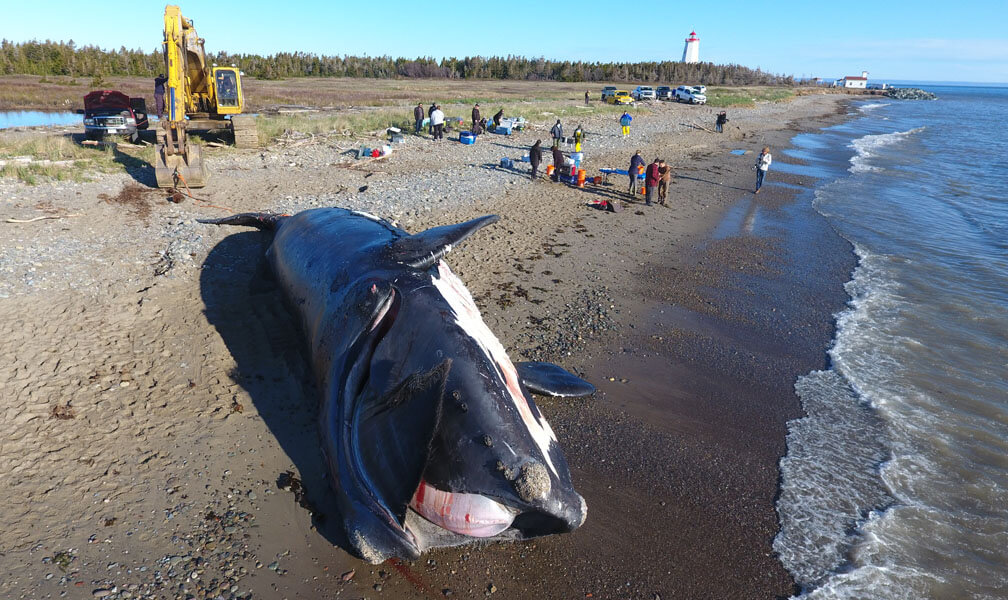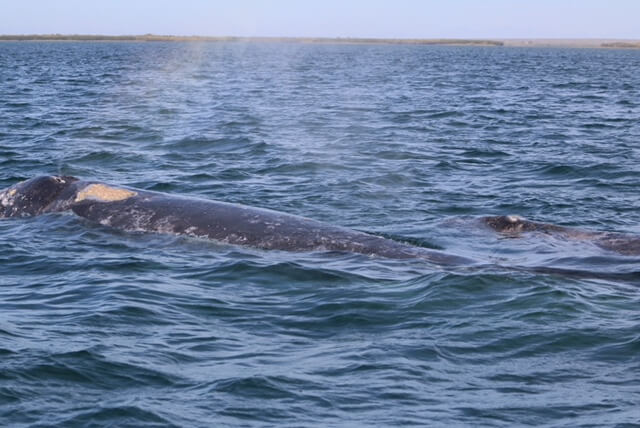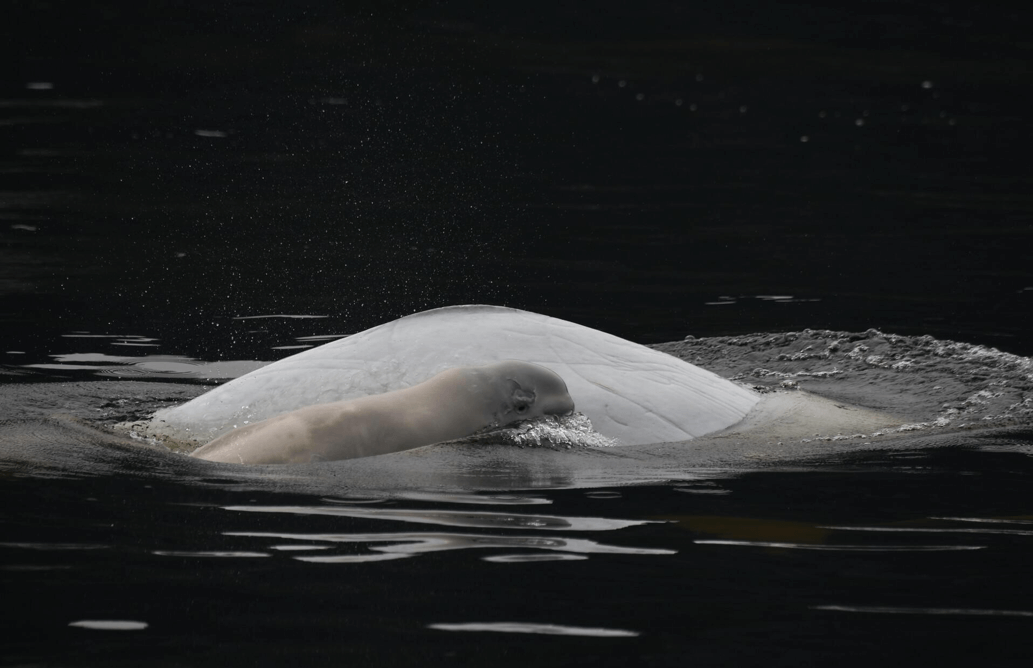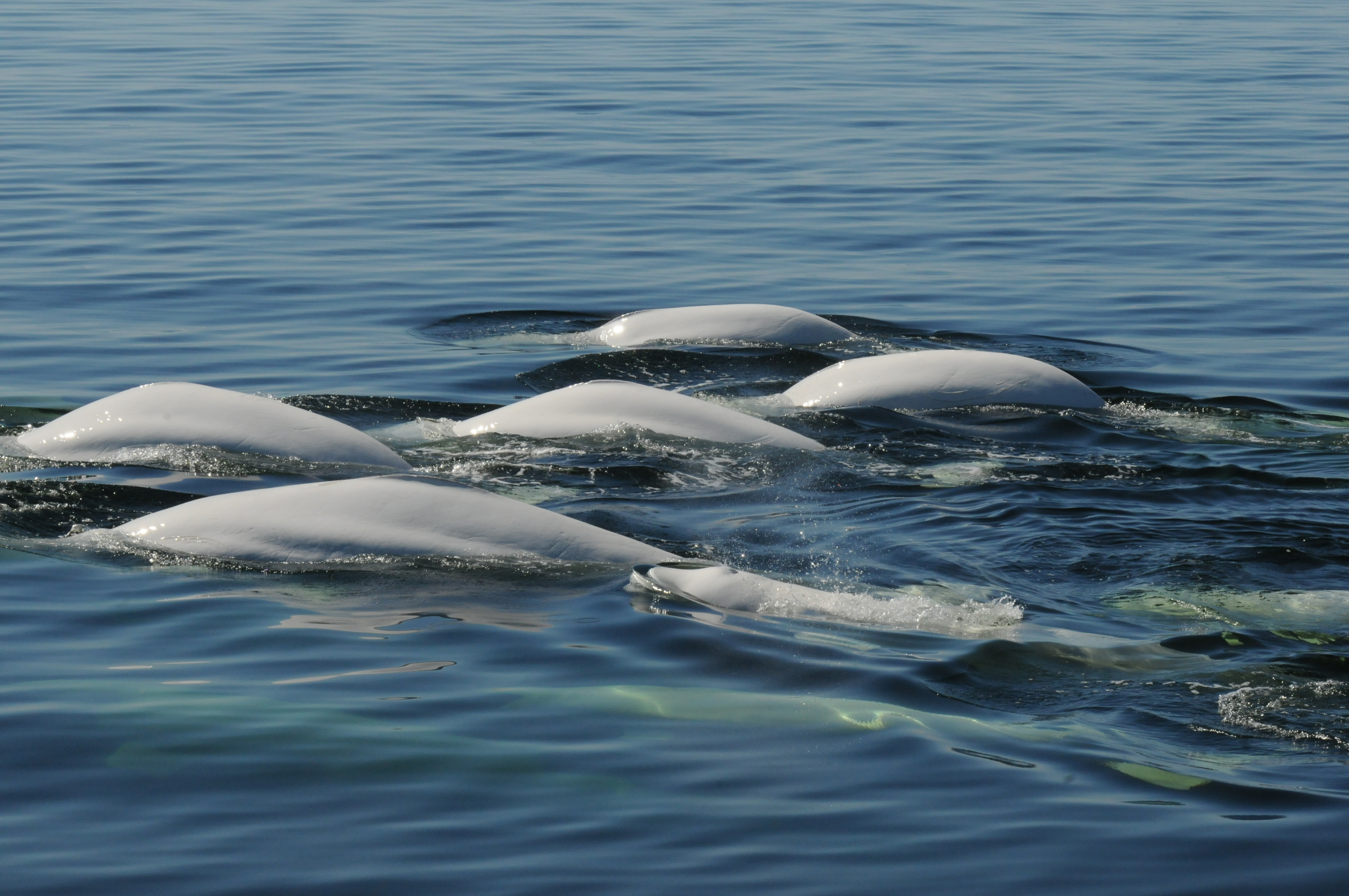In early June, the carcass of a female grey whale washes ashore in British Columbia, close to the US border. This is just one of the hundreds of grey whales that have been found up and down the west coast over the past six months. At the other end of the country, almost at the same time, a male right whale nicknamed Wolverine is found drifting in the waters of the St. Lawrence. Since 2017, 22 right whale carcasses have been recovered from Canadian and US waters. Could these distant cousins be suffering from the same fate?
According to Vancouver Aquarium’s head veterinarian Martin Haulena, these two populations are quite different and have very contrasting situations: “For grey whales, we are witnessing an increase in the Northeast Pacific population, which the most recent estimates place at 27,000 individuals! North Atlantic right whales, on the other hand, are on the brink of extinction. University of New Brunswick researcher Kimberly Davies adds, “There are just 411 left.”
For both species, an “unusual mortality event*” was reported by the National Oceanic and Atmospheric Agency (NOAA). But the measures to respond to both events vary, both in terms of causes of mortality and population status.
*In the United States, under the Marine Mammal Proctection Act, investigations may be conducted on the occurrence of unusual mortalities involving large numbers of marine mammals, such as the grey whale mortalities in 2019. This type of abnormal event is crucial, as it serves as an indicator of the state of health of the ocean. It also offers a broad perspective on environmental issues (which can impact human health and well-being).
Travelling on an empty tank
Like right whales, grey whales are long-distance migrants. In the Pacific, grey whales make the round trip between Alaska and Mexico while in the Atlantic, right whales spend summer in Canadian waters and winter off the coasts of Florida and Georgia. Regardless of the ocean or the species, their summer objective is to devour huge quantities of food to build up the reserves they need to make the trek to their breeding grounds, thousands of kilometres away.
However, migration can become treacherous if whales do not feed enough. In fact, of the six grey whales found in British Columbia in the last two months, five of them suffered from malnutrition. “They are in a poor state of health. They are so thin that we can see their spine poking out of their backs,” explains veterinarian Martin Haulena.
If grey whales are not fussy eaters, how is it that they are undernourished? Experts have two theories. First, there might be too many whales for the amount of food available. “It’s possible that the population has reached a threshold, which is called the capacity limit, and that the amount of food resources is not enough to keep everyone fed,” says Martin Haulena.
Climate change may also be weighing in the balance… in the form of a blob! Not some slimy extra-terrestrial, but rather a weather anomaly. The blob is a huge body of warm water that formed in the Gulf of Alaska in 2013. Since then, it has gained ground and now spans over 4 million square kilometres of ocean! These rising water temperatures are affecting and disrupting the Bering Sea ecosystem where grey whales go to gorge themselves on benthic invertebrates.
Zigzagging between boats
Unlike grey whales making their journey on an empty stomach, right whales have to deal with the shipping and fishing industries and the risks that come with them. In fact, half the deaths recorded over the past two years are attributable to human activities, including fatal ship strikes and entanglements in fishing gear.
University of New Brunswick researcher Kimberly Davies reminds us that: “North Atlantic right whales may disappear in less than 30 years! To give them a chance, we need to adapt our protection measures to their evolving ranges.”






